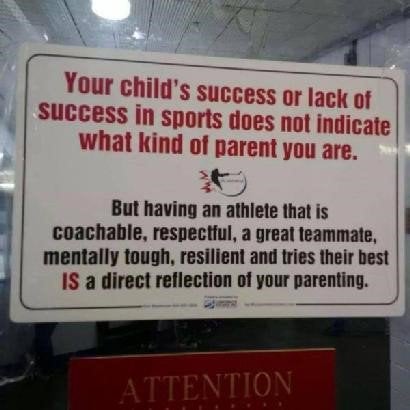
From thus article
How many of you have a boss who doesn't tolerate failure?Massive incentives to cover up mistakes, point the finger at others, and lie to everyone. Your real job is not performing your job duties: it's massaging the boss' ego.
The article above starts out strong, detailing a recent example of failure intolerance in the Volkswagen workplace, the use of software to fudge fuel efficiency readings.
BUT, then it goes on to blame that old chestnut of failure intolerance, helicopter parents:
But ask any successful person and they’ll tell you how failure and learning from it contributed to their success. Sadly, so many parents today are robbing their children of this valuable experience.
Sure, these “helicopter” parents may be well-intentioned, but they are grossly overreaching. Because they can’t handle seeing their kids truly be challenged, uncomfortable or, god forbid, fail at something, they interfere in every area of their lives.
I maintain that our employers rob us of the opportunity to learn from failure a LOT worse than our parents did. How?
Because after one failure at work, too often it's one-and-done. We have the opportunity to work with the same person, try again on the same project, try to master the same skill, taken away from us. Trying again after a failure is too often considered too costly, too damaging to the culture, causing too many hard feelings, is just plain too uncomfortable.
Sometimes, the job itself is taken away after a single failure. Sometimes we fail to get hired if ONE person disagrees with it.
And then decision makers, after taking away opportunities after our failures, have the gall to call these “learning experiences”. What exactly are you learning? What not to do? How to live in fear of feedback? How to look back at your missed one chance, unable to do anything but woulda-coulda-shoulda about better decisions you will now NEVER get to retry, except at another company and with other people?
How do you learn from failure and repair your reputation with your coworkers, if you don't get more than once chance to crack the same situation? Why do you always have to move on?
Sean’s words are an important reminder for both parents and business leaders of how we need to cultivate an environment that fosters failure, growth and self-discovery.
Shortsighted employers make a mockery of those concepts. “Self-discovery” is you deciding that XYZ is not your strength, and resolving to avoid it hereafter. “Growth” is pruning your possible range of skills. “Professional” becomes redefined as you staying within your smaller and smaller niche if you want to succeed, and pretending to be OK with that.
Bottom line: If we want our young players to develop and have fun, we need to learn to shut up and let them drive.”
You don't develop either if you get kicked out of the game if you fail. One-and-done games are never fun.
